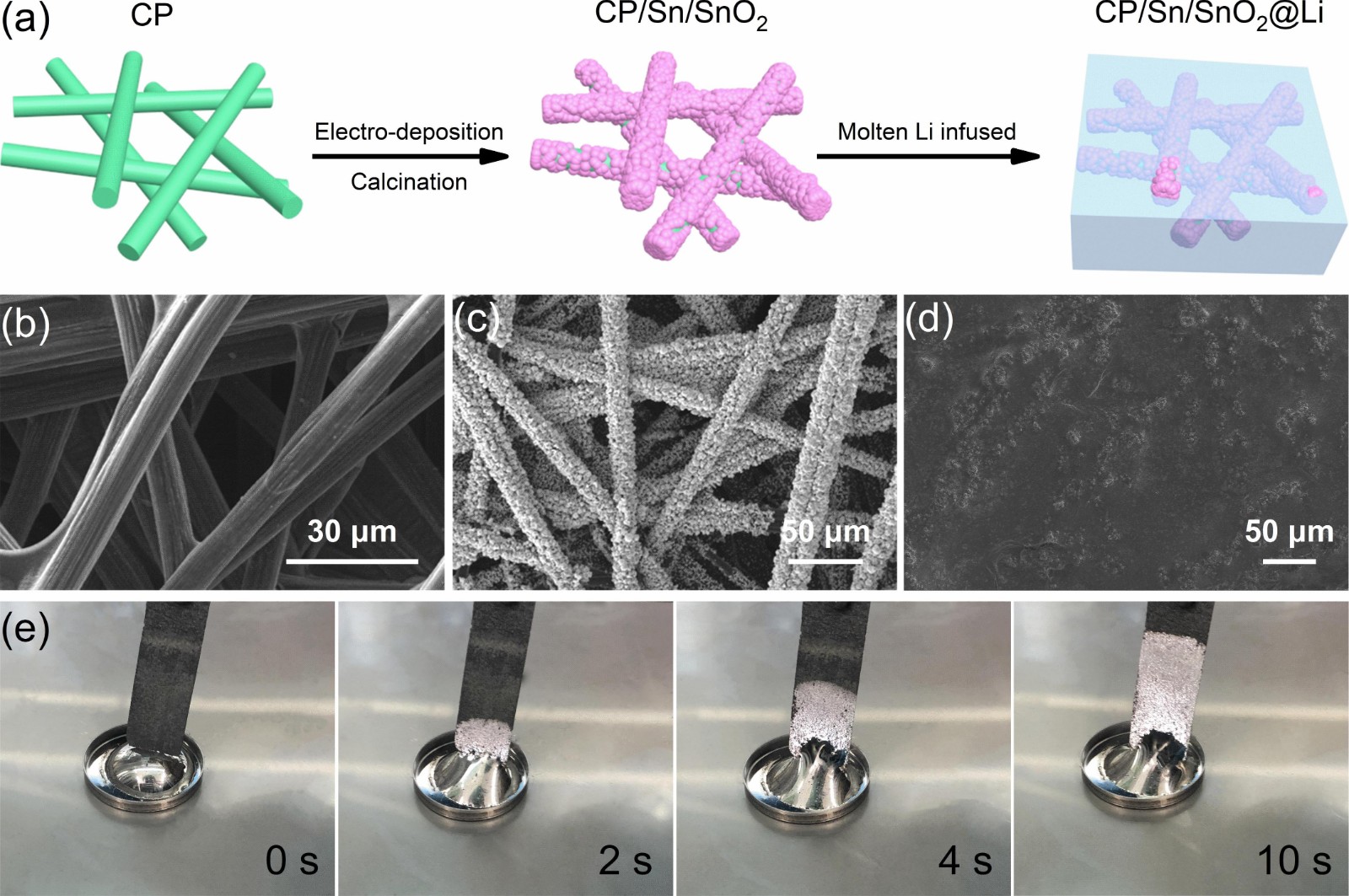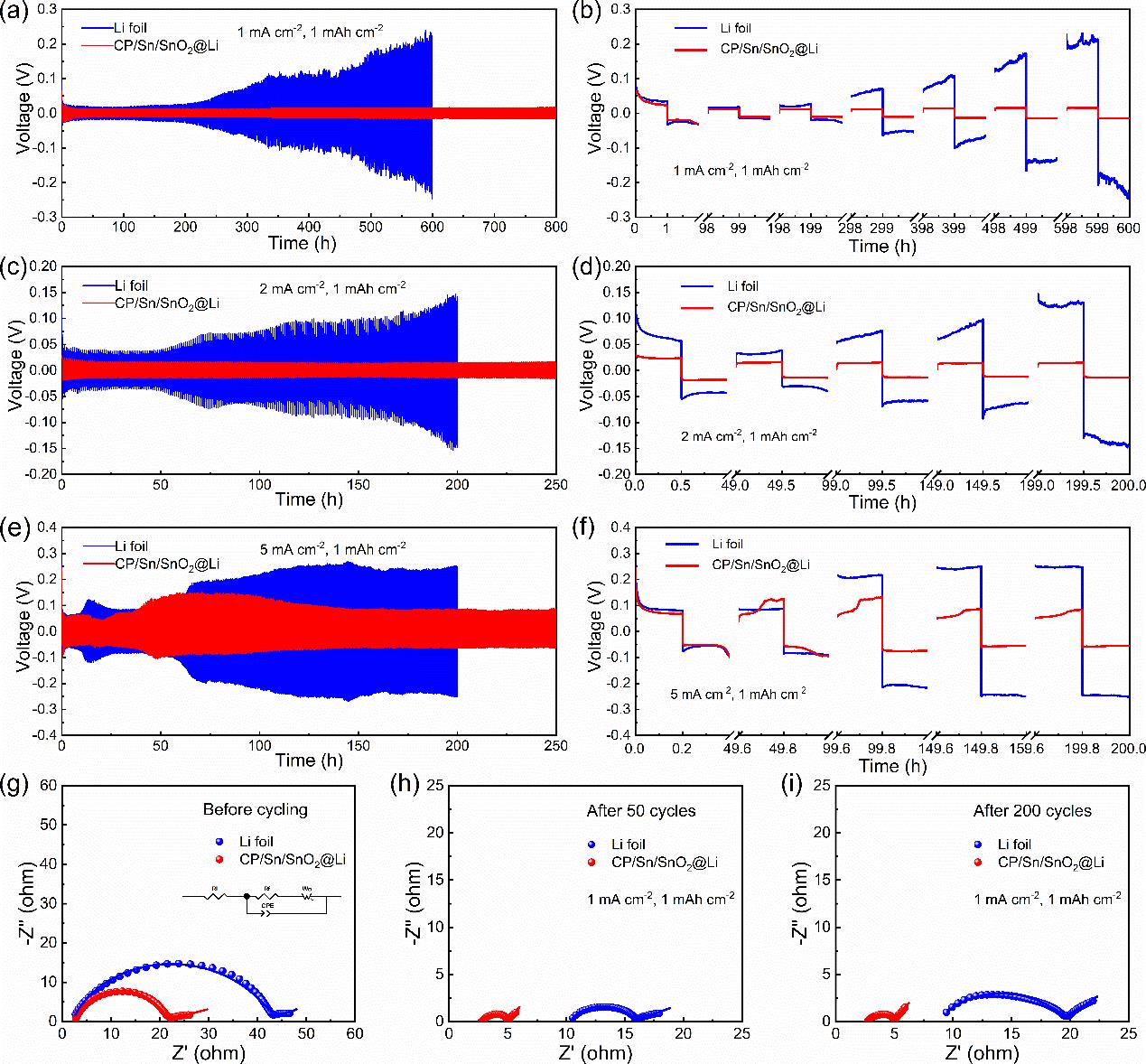谭磊博士论文"Oxygen-Induced Lithiophilicity of Tin-based Framework toward Highly Stable Lithium Metal Anode"被Chemical Engineering Journal接收发表
发布时间:2020-04-25
点击次数:
The uncontrollable dendrite formation and infinite volume expansion bring serious safety risks and short service life to high-energy lithium metal batteries. Here, by introducing oxygen as a type of SnO2 into the Sn and carbon paper (CP) composite, a lithiophilic framework (CP/Sn/SnO2) is proposed as lithium storage host for stable Li metal anode. It demonstrates that the wettability of the framework to Li can be greatly improved by partial oxidation of Sn. Then, the spontaneous reaction between the formed SnO2 and molten Li can induce the alloying of Li and Sn. Consequently, both of Sn and SnO2 in the framework finally converse to lithiophilic Li-Sn alloy as well as a small amount of lithium conductor Li2O. After molten Li injection, the prepared CP/Sn/SnO2@Li electrode achieves a dendrite-free morphology, near-zero volume change and extraordinary electrochemical performance. Furthermore, low interfacial resistance and long-term lifetime for 800 h at 1 mA cm-1 with an ultra-low voltage hysteresis of 16 mV in symmetric cells and excellent cycling stability in full cells with LiFePO4 cathode are realized. The oxygen-induced strategy provides important advancement for a stable 3D lithiophilic framework with low Li2O content in developing safe and commercial Li metal batteries.


